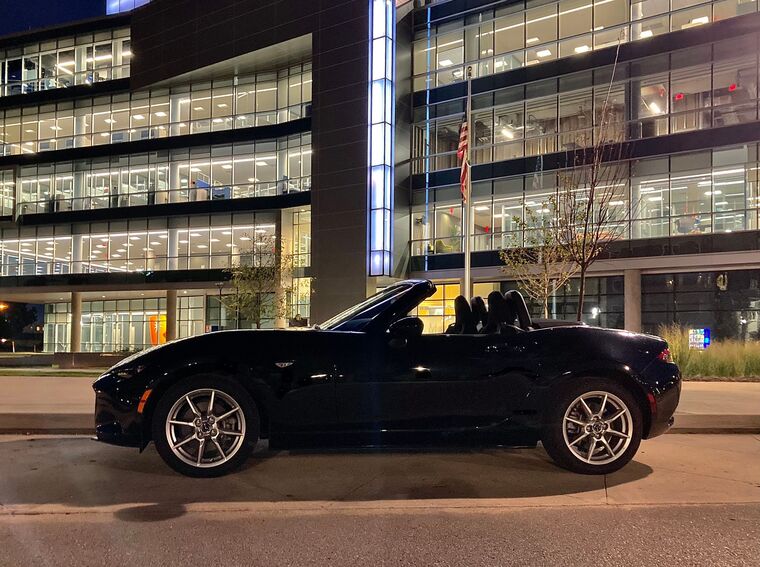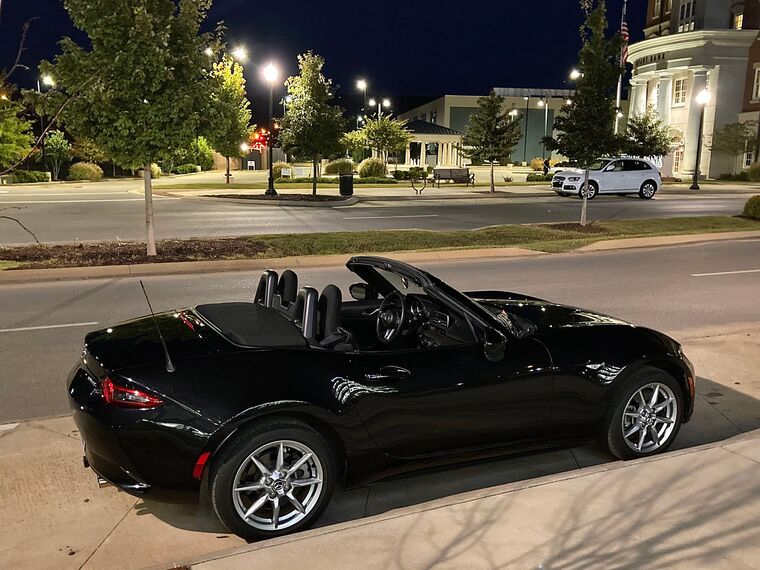1960 Conn 6B Victor trumpet.
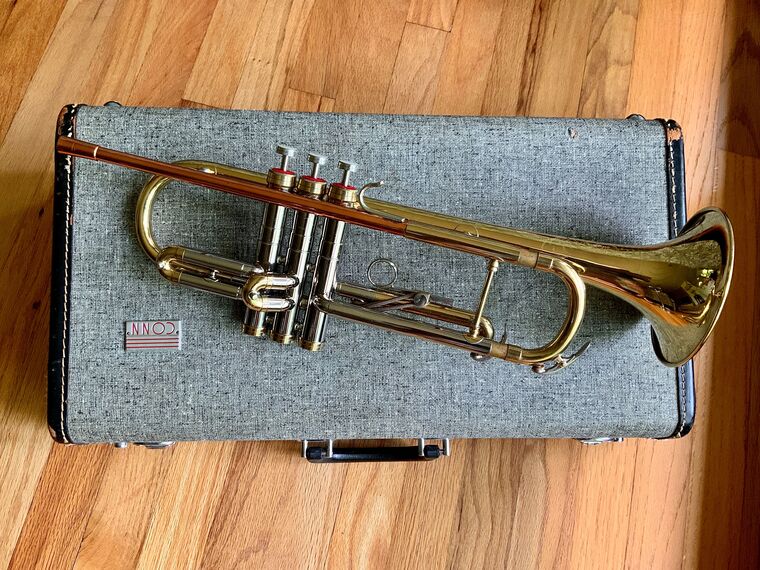
Yes, they fit the valves to a specific horn, so they stamped them with matching numbers to keep them together during the manufacturing process. They will always start with a 1, or a +3 number - 1,4,7,10,13,16,19,22,...etc. How high they go depended on the number of like instruments in the production run. The next production run would start at 1 again.
This may interest some of you. I received this notice in the mail today from the Marine Band. Your tax dollars at work...

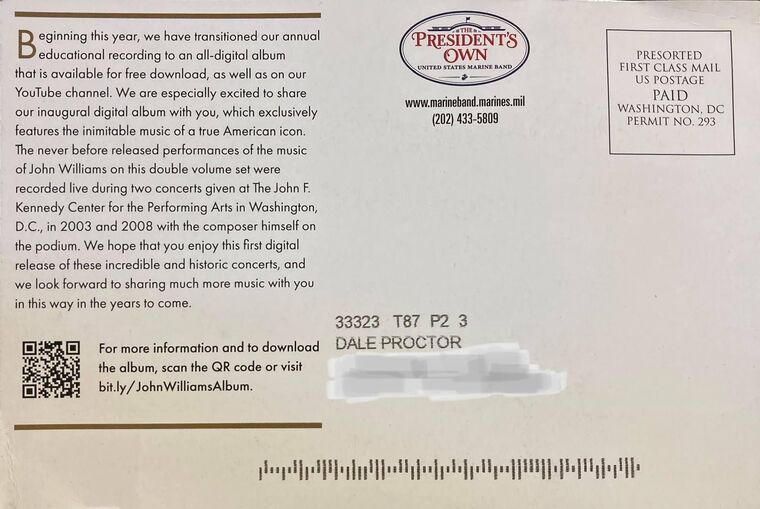
@J-Jericho said in WWII plastic bugle:
How does it play? Do you think that a good car wax or perhaps ceramic coating would seal the smell?
It’s a little dull sounding, but plays ok. I probably won’t play it again due to the unstable material it’s made of. I’ve read that the chemicals in them break down over the years and they can deform and/or disintegrate. This one seems to be in fine condition, so I probably won’t do anything but dust it. It’s on a shelf in the spare bedroom, and you don’t catch the smell unless you get really close to it.
“In order to prevent decay and prolong the life of Tenite materials, the US National Park Service recommends these items be stored with a "stable temperature below 68°F; stable RH between 30%-40%. Well ventilate, segregate; use gas adsorbents if stored in closed container.”
We keep the house a little warmer than that, around 73 or 74 during the day, but that will have to do…lol
No, I still have it. I’ve flirted a few times with selling it, but no takers…
Nice! I have a large bore 184G from the early 1990s and really enjoy playing it.
@ROWUK said in Student trumpet:
@Trumpetb, I report my first hand experience. I did not say that the importer dictated price. I said that the manufacturers have a catalog of options and that the importer can put instruments together from junk to great. The assumption that there must be a moral obligation in commerce is simply naive on your part. That is why there are laws to protect the end customer…
There’s a similar perception about Lucas electronics produced in England years ago for the automotive and motorcycle industry. The popular joke was “Lucas, prince of darkness”, because they were notoriously unreliable. However, the electronics were built to the price point required by the companies using them in their products. Lucas also built electronics for the aircraft industry, and had a reputation for high quality with those, because they were built to a much higher standard and price point. So, Lucas built products that were “just good enough” and products that were world class at the same time. The various markets dictated the quality level the factory produced.
@administrator said in Olds Ambassador Eb Trumpet:
What a strange instrument. I would be curious to see how such a thing plays. If it's anything like my Super Recording...
I can state with certainty that it doesn’t even play as well as a Bb Olds Ambassador…lol
Bach flugelhorn mouthpieces do have a slightly smaller shank than a Yamaha, but the size would typically be marked 7FL. Could it be a cornet mouthpiece? A Bach 7 cornet piece would have a really deep cup.
@bigdub said in Jackie Gleason Plays Cornet:
One thing seems clear to me. Both Jackie Gleason and Art Carney both played the cornet. Themselves. No fake dubbing. Something you almost never see anymore.
Another thing. My wife and I are about to celebrate our 45th anniversary. The couple who came to the Kramdens apartment were married 40, supposedly. They looked about 89.
Do I look 5 years older than those two?
Don’t answer if you have nothing nice to say....hahahahaha
They must have gotten married later in life...lol.
My guess is that it’s a mellophone mouthpiece. Although the Bach cup diameter measurements don’t agree with yours, the Bach literature indicates the 7 mellophone mouthpiece cup diameter is 2.5 mm wider than the Bach 3C cornet mouthpiece.
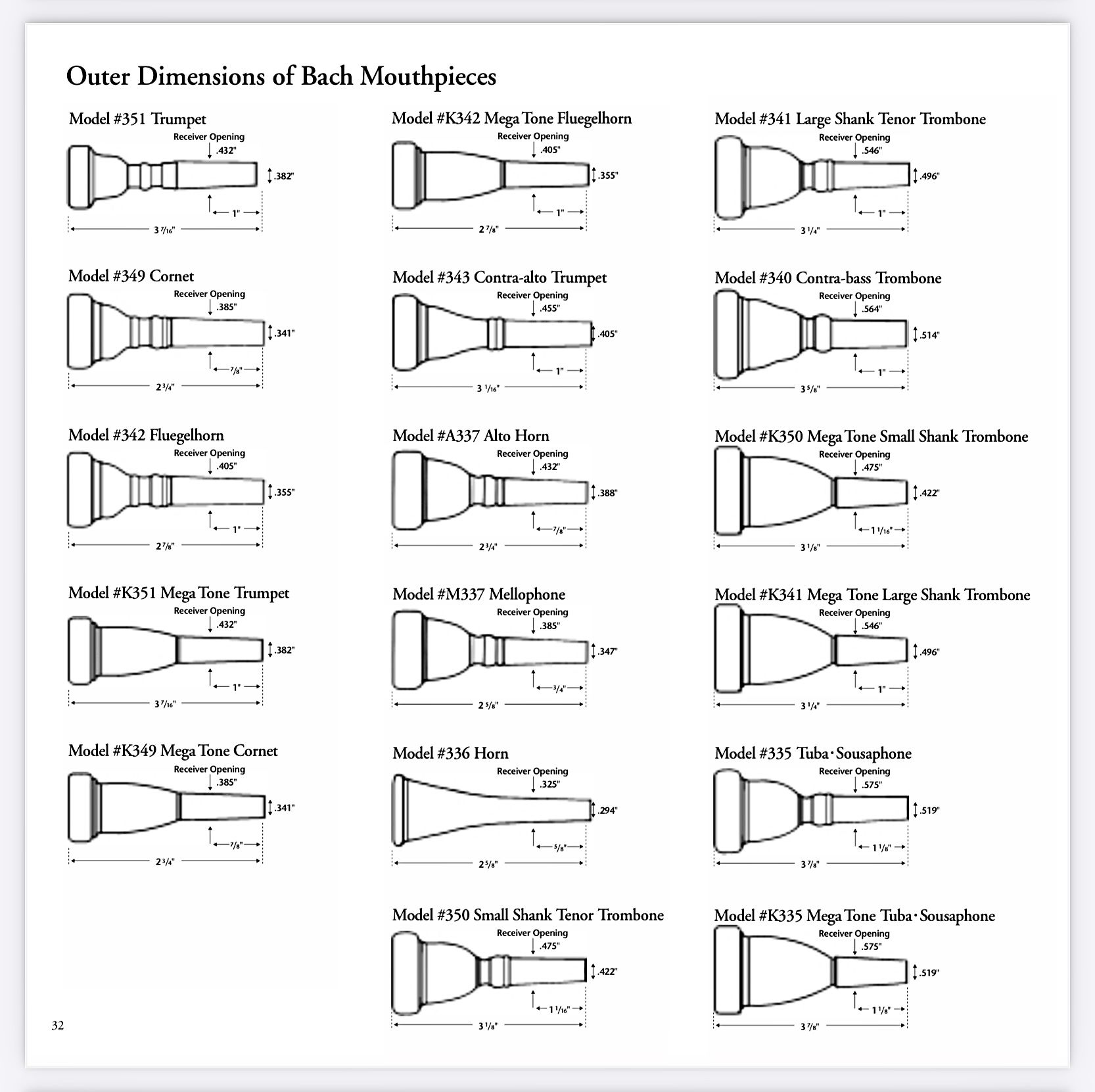
It’s also a useful technique to use when you have to come in on a pp note, especially after a significant number of rest measures.
@trumpetsplus said in Jaeger Brass moving to Germany:
@trumpetsplus I already have the Resonance Enhancers and my special trigger linkage system for additional valves (Quarter tone, Ascending C/D, in tune Bb/C, double bell) plus the range extender third valve slide, I expect to do more of this type of work, and such other custom work as comes up.
I have the resonance enhancers on both my Bb Strads, the trumpet and cornet. They really do work, and a friend of mine is using them too after borrowing one of my sets and deciding he wanted some. You can see them between the valves on this picture.
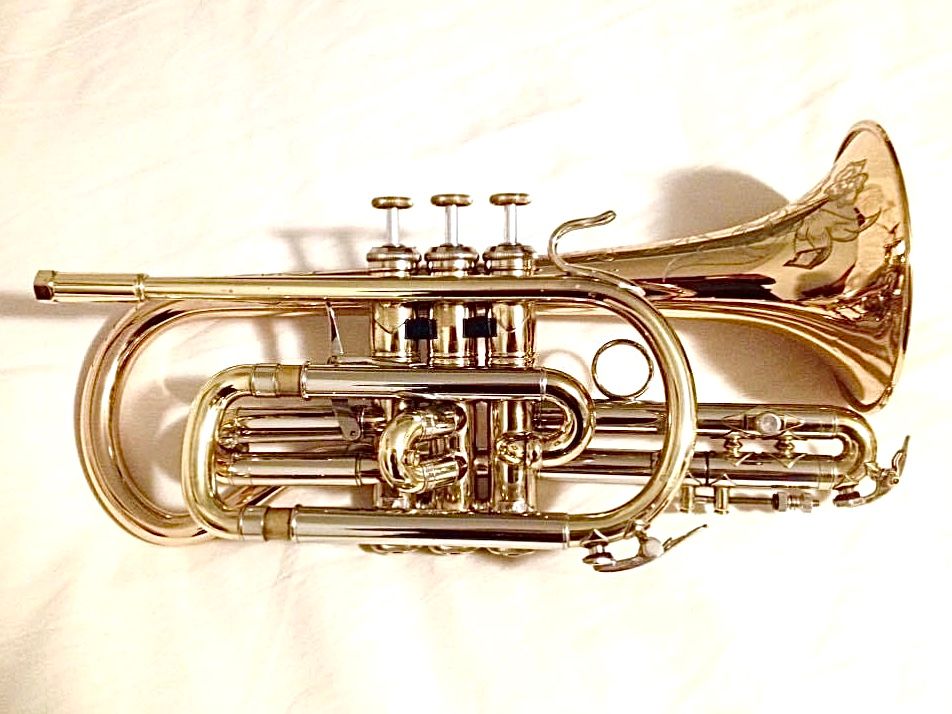
I’ll be using this field trumpet to sound Taps. A real musical instrument made by Kanstul, this one pitched in Bb. I use a Bach 6BM trumpet mouthpiece in it, which I found to give good intonation and a nice tone. I keep it in an old American-wrap cornet case. Practice mute is for warming up a bit in the car at the cemetery before a military burial.
There’s an active duty military family that live across the street, and they plan on stepping outside to listen. Just today, I found out their oldest son, who is 10, has recently begun taking trumpet lessons, so he will probably have a special interest in it.
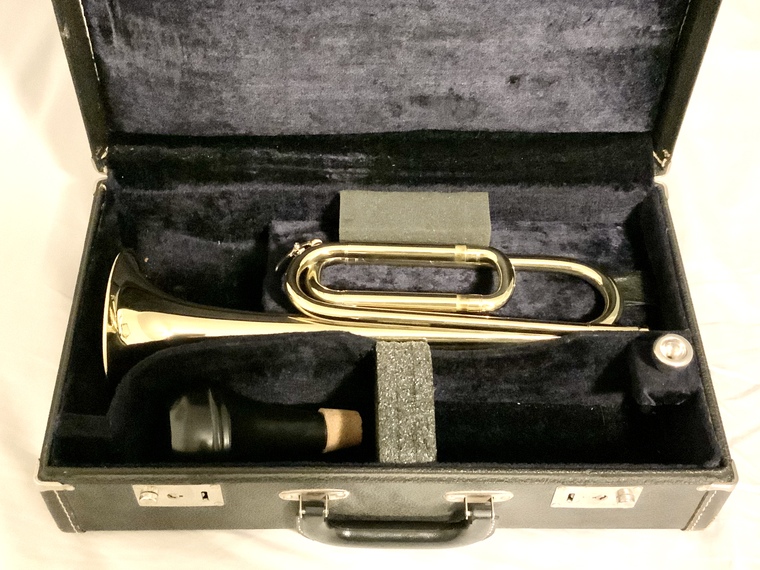
@Newell-Post said in Odd Mouthpice:
Well, according to my trusty micrometer, it mics out at 0.419" at the receiver and 0.363" at the tip, which doesn't match any of the dimensions Dale kindly provided. It's probably something made for some antiquated brand of mellophone that doesn't exist any more.
I’d say you truly have an odd mouthpiece, then…
Welcome to the forum! Glad you picked up the instrument again and joined us.

Still enjoying the little roadster. Took a couple photos of it last night on the way home from orchestra rehearsal. There’s a recess in the trunk that’s a nice fit for a trumpet or cornet case…
